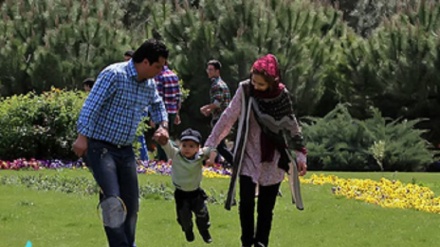Iranian Family (27)
Welcome to this week's episode of the series "Iranian Family". Today, we discuss the future of Iranian family; the features of a religious family; and the necessity to maintain a life plan.
Kindness and sympathy attracts others towards you, without you even noticing it. God Almighty bestowed these ethical virtues upon the Prophet of Islam, Mohammad (Blessings of God upon him and his progeny).
Today, we discuss the future of the Iranian family. Family in transition, and family in crisis, are two concepts which display a vague and critical future for the family, such that it could even lead to family's collapse.
In the discussion about Iranian families, sociologists such as Dr. Azad Armaki, believe in the continuous existence of family, and point out that family is an ever-lasting foundation, with a promising future. Children, teenagers, middle-aged and elderly people, irrespective of their needs and capacities, are under the influence of their families.
Modernity is the main barrier against families. Some believe that in a modern atmosphere, family collapses. Dr. Armaki, who defends the existence of Iranian family, speaks of the powerful Iranian culture and tradition. In this approach, the individuals and families pave the way for formation of a large community. Based on this theory, Iranian nationality is tied to the existence of families.
Dr. Armaki underlines that although families have changed throughout the structural developments of the modern world, such changes are not tantamount to the collapse of families. Families maintain a number of unique duties and functions such as upbringing children, maintaining humane ethics, and transferring the fundamental elements of culture.
Iranians, in their everyday activities, organize their familial lives. They select their spouses, have children, make efforts to solve existing problems among married couples, and support their children in honing their skills; all of which show the originality of Iranian families and familial life. If people would be indifferent toward their families in ordinary conditions, one could claim that families are on the verge of collapse. Meanwhile, this is certainly not the case in Iran; and families, especially the upbringing of children within families, are of paramount importance in Islamic Iran.
In the meantime, in the recent decade, the foundation of family has turned into the talking point of managers, politicians, and intellectuals. Well-known thinkers, at the end of 20th Century and beginning of 21st Century, have resembled families to cultural and ethical organizations, and have heralded an era within which families regain their original importance and significance.
Now, let's pay attention to the features of an appropriate and religious family.
In religious texts, one of the main features of a religious family is the respect and honor they grant to each other.
The 70th ayah of Surat al-Isra in Holy Quran notes: "Certainly We have honored the Children of Adam, and carried them over land and sea, and provided them with all the good things, and given them an advantage over many of those We have created, with a complete preference."
The second feature of a religious family is the kindness of family members toward each other.
The third feature of a religious family is the foundation of their communications on transparency, honesty, and amity. Religious families put emphasis on kindness, prevent vices, and invite family members to respect others, communicate with God, and attend and pilgrimage religious sites. Families who maintain these characteristic traits and ethical virtues, do not argue over pointless and unimportant topics, and guide each other toward kindness and amity.
Members of religious families interact and honor each other and try to be better individuals. Within religious families, family members make utmost efforts to acquire and boost their religious knowledge and sciences. Religious family members are vigilant and encourage each other to boost their knowledge.
Planning is one of the factors which contribute to success in any given realm. Hence, it is said that success is no coincidence, and is in fact rooted in appropriate planning. Planning is key to a successful married life.
One should consider his and his spouse's capacity in planning and determining goals. Furthermore, long-term plans should be divided into a number of short-term plans. For instance, if you intend to accomplish a goal within three years, you should also take into consideration monthly and annual goals for materialization of your long-term aim.
MR/ME


